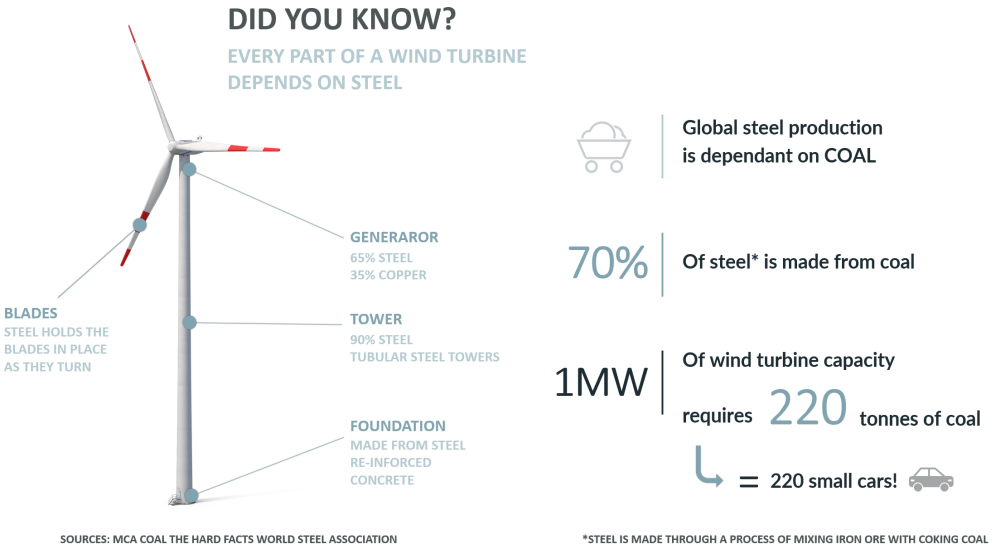
Not only steel — The role of by-products
By-products of coke production are used for high value added products e.g. carbon fibers and nanostructures which made from coal tar, or hydrogen which can be separated from coke oven gas.
Coke oven tar
Coke tar is used for production of carbon fibers which are an exceptionally durable, light material with a unique look. These fibers are used as construction material in numerous laminates requiring special properties, but for most in aviation and automotive industry where they offer the highest lightweight construction potential, to lower the weight and therefore also fuel consumption. They are also used in production of hydrogen tanks which could be of significant importance in the development of hydrogen based economy. Demand for carbon fibers is predicted to increase significantly from 77.000 tonnes in 2018 to 117.000 tonnes in 2022 according the Fraunhofer Institute.
Carbon nanostructures
Various industry implementations – e.g. automotive, energy, chemistry and electronics. Strong market in the aviation, defense and electronic sectors mainly due to their small weight combined with exceptional durability. Graphite electrodes contain about 1-3% of carbon nanostructures for lit-ion batteries.
EU should protect its coking coal potential
Coking coal is one of the strategic raw materials contributing to the development of an innovative and low-emission economy. It is a key ingredient for steel and basic feedstock for valuable materials like carbon fibers and hydrogen, which are by-products of coke production.
The European steel industry depends on coking coal. It accounts for nearly 2% of the European Union’s total production and employs almost 2.5 million people with the annual value of production over 210 billion.
The total European production of coking coal accounts to only 1% of world production (with Poland as a main EU producers with more than 12.3 Mt and Czech Republic with 3.9 Mt).
In 2017 the European Union imported 38 million tonnes of coking coal, which is twice as much as the domestic production (17 million tonnes)
Therefore, EU domestic supply of coking coal should not only be considered crucial, but also properly secured and incentivised.
The Critical Raw Materials list
The Critical Raw Materials (CRM list) list is a part of the raw materials initiative. Aimed at highlighting the raw materials of strategic importance, it is an incentive to enlarge the necessary resource base.
The currently binding 3rd edition of critical raw material list released in 2017 includes raw materials that reach or exceed the thresholds for the parameters of economic importance (EI) and supply risk (SR) set by the European Commission. The coking coal was kept on the list conditionally because it had not reached the economic importance threshold. In case it does not fully meet this criterion on the next revision of the list it should be withdrawn during the next assessment.
Upcoming revision of the CRM list
The new CRM list will be published in 2020. It will be established based on a report by the members of the European Commission Raw Material Supply Expert Group on defining critical raw materials and then submitted for an open consultation.
Coking coal has been and will be a base for the innovative European industry competing on the global market. Also its availability within EU may change rapidly due to the reduction of supply and rising demand for steel. That is why coking coal should unconditionally remain on the list.
It is also crucial for coking coal to be kept on the CRM list for investment reasons. A continuous presence on this list helps secure financing for the development of the critical investments. This is of utmost importance especially nowadays, when financial and insurance companies are no longer willing to support businesses connected with coal.